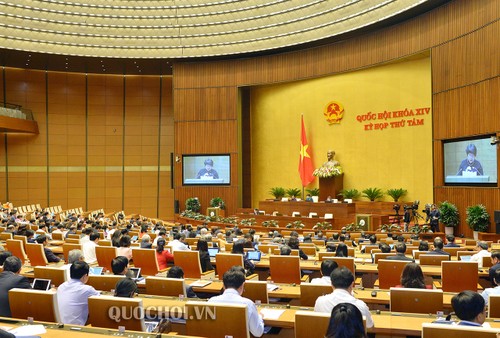 (Photo: quochoi.vn) (Photo: quochoi.vn) |
Major revisions include the retirement age, which will be 62 for men by 2028 and 60 for women by 2035. The Revised Labor Code stipulates that working time must not exceed eight hours per day or 48 hours per week. It also adds one more public holiday before or after the National Day, September 2.
The revision aims to fine-tune the institutions of Vietnam’s socialist-oriented market economy, promote the labor market, facilitate recruitment and the use of labor, and protect the legitimate rights and interests of employers and employees. The Code conforms with the 2013 Constitution regarding workers’ basic rights and obligations and is more in line with universal fundamental labor rights, a lever of Vietnam’s international economic integration.
The Code has received positive feedback from international experts.
Tim De Meyer, Senior Advisor on Standards Policy with the International Labor Organization, said: “I think the most significant progress towards better in line with international standards is in the area of what we call the rights of employers and workers. It also means to form organizations that can engage in negotiation on working conditions. So we hope that with that Code, it will be possible to align the situation in Vietnam better with international standards, for example, minimum wage, making sure that bigger number of workers have minimum wage to live on.”
Bernd Lange, Chairman of the European Parliament Committee on International Trade (INTA), said during his recent visit to Vietnam: “I think the revisions to the Labor Code is crucial items for my colleagues in the parliament to push up the realization of Vietnam’s FTAs. Of course in this provision, the Labor Code will have relevant elements to domestic situations of workers. I think it’s really important to have a playing field to show the ability and limitations of workers on the ground. I’m really convinced that it’s a big step for Vietnam and also a big step for having alignment with international standards.”
Revision of the Labor Code began in 2016. The draft has received opinions from experts, international organizations, and the public.